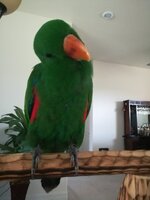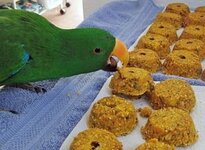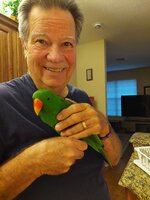azflcowboy
Well-known member
- Oct 20, 2022
- 169
- 339
- Parrots
- Solomon Island Eclectus (Male)
Hello
I use raw almonds as a treat and training tool.
My vet recommended Dandelion and Milk Thistle to his drinking water. To lower the fat content and aid his liver. I add 2-3 drops in the day time feeding enclosure and 2-3 drops to his water in his daytime and nighttime enclosure.
Does anyone have any ideas concerning this additional suplement?
Thank you and God Bless All His Fine Feathered Creations.
Larry Kiceina
I use raw almonds as a treat and training tool.
My vet recommended Dandelion and Milk Thistle to his drinking water. To lower the fat content and aid his liver. I add 2-3 drops in the day time feeding enclosure and 2-3 drops to his water in his daytime and nighttime enclosure.
Does anyone have any ideas concerning this additional suplement?
Thank you and God Bless All His Fine Feathered Creations.
Larry Kiceina


